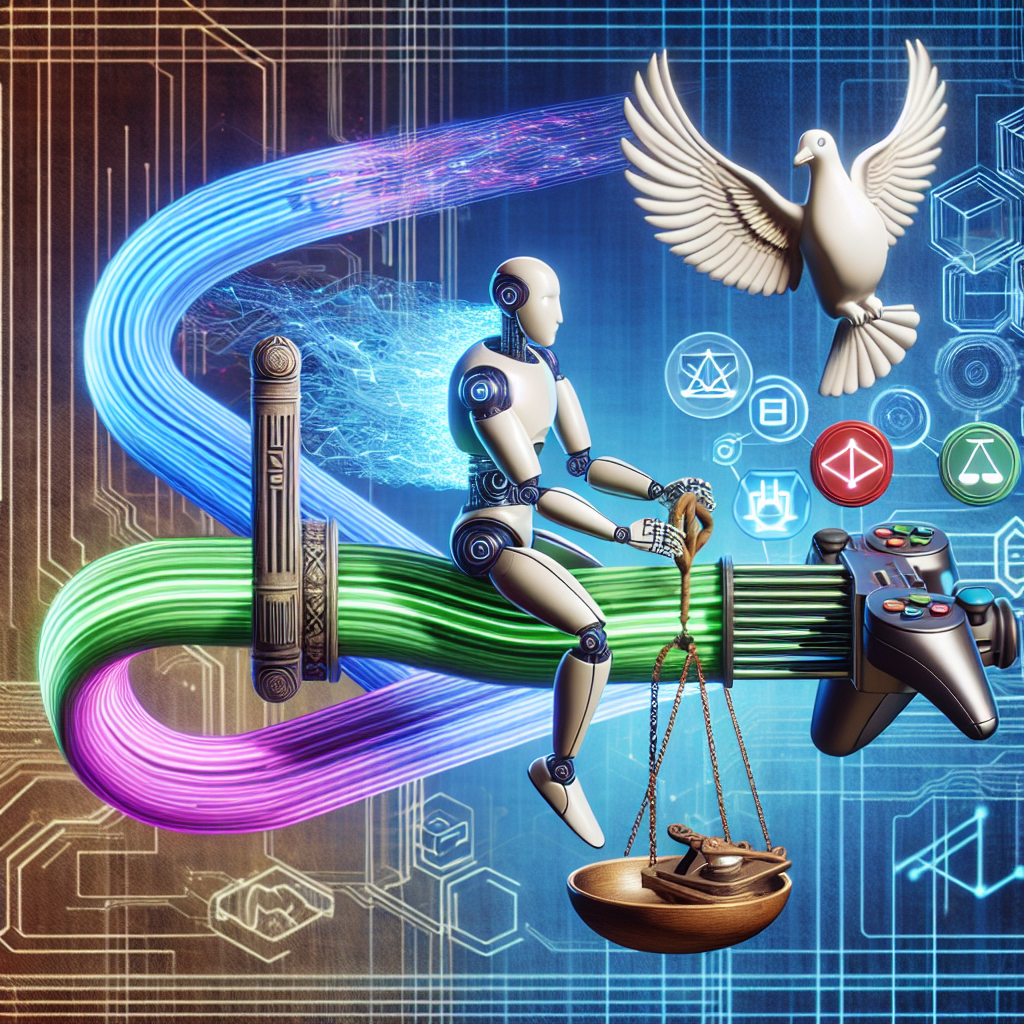The Ethics of AI in Gaming
Artificial intelligence (AI) has become a prevalent and integral part of the gaming industry. From enhancing player experiences to creating more immersive and interactive gameplay, AI has revolutionized the way games are designed and played. However, with the rise of AI in gaming comes a host of ethical considerations that must be addressed. In this article, we will explore the ethics of AI in gaming, including the potential benefits and drawbacks, as well as the implications for players, developers, and society as a whole.
Benefits of AI in Gaming
AI has the potential to greatly enhance the gaming experience for players in a variety of ways. One of the main benefits of AI in gaming is its ability to create more realistic and challenging opponents. AI-powered NPCs (non-player characters) can adapt to player behavior, learn from their actions, and provide a more dynamic and engaging gameplay experience. This can help keep players engaged and immersed in the game world, as they are constantly presented with new challenges and obstacles to overcome.
AI can also be used to improve game design and development processes. AI algorithms can analyze player data and feedback to help developers better understand player behavior and preferences. This can lead to more personalized gaming experiences, as developers can tailor game content to individual players based on their preferences and play styles.
In addition, AI can help improve accessibility in gaming by providing assistive technologies for players with disabilities. AI-powered tools such as speech recognition software and eye-tracking technology can help make games more accessible to a wider range of players, allowing everyone to enjoy the benefits of gaming.
Drawbacks of AI in Gaming
While AI in gaming offers many benefits, there are also potential drawbacks and ethical concerns that need to be considered. One of the main concerns is the potential for AI to perpetuate harmful stereotypes and biases. AI algorithms are trained on large datasets of information, which can sometimes contain biased or discriminatory content. This can lead to AI-powered NPCs exhibiting biased behavior, such as racial or gender stereotypes, which can have negative implications for players and society as a whole.
Another ethical concern is the potential for AI to infringe on player privacy. AI algorithms can collect and analyze large amounts of player data, such as gameplay habits, preferences, and personal information. This data can be used to create personalized gaming experiences, but it also raises concerns about data privacy and security. Players may be uncomfortable with the idea of their personal information being collected and used without their consent, leading to potential privacy violations.
Furthermore, there is the issue of AI potentially replacing human developers and designers in the gaming industry. As AI technology continues to advance, there is a concern that AI-powered tools and algorithms may eventually be able to create games without human input. This raises questions about the role of human creativity and innovation in game development, as well as the potential impact on the job market for human developers and designers.
Implications for Players, Developers, and Society
The rise of AI in gaming has far-reaching implications for players, developers, and society as a whole. For players, AI can provide more personalized and engaging gaming experiences, but it also raises concerns about data privacy and security. Players may need to be more cautious about the information they share with AI-powered systems and be aware of the potential risks involved.
For developers, AI offers new opportunities for innovation and creativity in game design, but it also requires a careful consideration of ethical implications. Developers must ensure that AI-powered systems are designed and implemented in a way that is fair, transparent, and respectful of player rights. They must also be mindful of the potential impact of AI on job opportunities in the gaming industry and work to address any concerns about job displacement.
In society, the widespread adoption of AI in gaming raises broader questions about the ethical use of AI technology in general. As AI continues to advance, there is a need for clear guidelines and regulations to ensure that AI is used in a responsible and ethical manner. This includes addressing issues such as bias and discrimination, data privacy and security, and the impact on human employment.
FAQs:
1. What are some examples of AI in gaming?
– Some examples of AI in gaming include AI-powered NPCs that adapt to player behavior, AI algorithms that analyze player data to personalize gaming experiences, and AI-powered assistive technologies for players with disabilities.
2. How can AI in gaming benefit players?
– AI in gaming can benefit players by providing more realistic and challenging opponents, personalized gaming experiences, and improved accessibility for players with disabilities.
3. What are some ethical concerns related to AI in gaming?
– Some ethical concerns related to AI in gaming include the potential for AI to perpetuate harmful stereotypes and biases, infringe on player privacy, and replace human developers and designers in the gaming industry.
4. How can developers address ethical concerns related to AI in gaming?
– Developers can address ethical concerns related to AI in gaming by designing AI-powered systems that are fair, transparent, and respectful of player rights, as well as being mindful of the potential impact on job opportunities in the gaming industry.
In conclusion, the ethics of AI in gaming are complex and multifaceted, with both benefits and drawbacks to consider. As AI technology continues to advance, it is important for players, developers, and society as a whole to be mindful of the ethical implications of AI in gaming and work together to ensure that it is used in a responsible and ethical manner. By addressing these concerns and working towards ethical guidelines and regulations, we can harness the power of AI to create more engaging, immersive, and inclusive gaming experiences for everyone.

